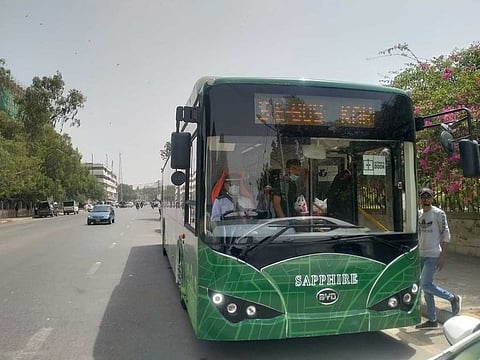Pakistan’s New Electric Vehicle Policy Aims for 30% Electric Vehicle Sales by 2030
Pakistan has introduced its National Electric Vehicle (NEV) Policy 2025-2030, marking a significant step towards sustainable transportation. The policy was announced at a press conference in Islamabad, with Special Assistant to the Prime Minister Haroon Akhtar Khan stating that this initiative is expected to be a ‘game-changer’ for Pakistan’s economy, environment, and industrial landscape.
Key Features of the NEV Policy
The new policy includes several key components designed to promote the adoption of electric vehicles (EVs) across the country. For the 2025-26 fiscal year, Rs9 billion has been allocated to support the introduction of new electric bikes and rickshaws, potentially enabling the procurement of approximately 116,000 electric bikes and 3,100 electric rickshaws.

The government has set an ambitious target for 30% of all new vehicles sold in Pakistan to be electric by 2030. To support this goal, the policy includes plans to install 40 new EV charging stations along major highways, spaced approximately 100km apart.
Environmental and Economic Impact
The shift to electric vehicles is expected to significantly reduce carbon emissions from Pakistan’s transportation sector, which saw a 44% increase in emissions between 2013 and 2018. By promoting local manufacturing of EV components, the government aims to boost the industrial sector and create job opportunities. Currently, over 90% of parts for two- and three-wheelers are already manufactured locally.
The policy is anticipated to result in substantial fuel savings, with estimates suggesting nearly 2 billion liters of fuel could be saved. Financially, the government expects savings of up to Rs 800 billion over the next 25 years.
Supporting Local Manufacturing
To encourage domestic production, the government will offer incentives to local manufacturers. Special support packages are also planned for small and medium enterprises (SMEs) to further promote localization in the EV sector.
This comprehensive approach to promoting electric vehicles positions Pakistan at the forefront of sustainable transportation in the region, with potential benefits extending to both the environment and the economy.



